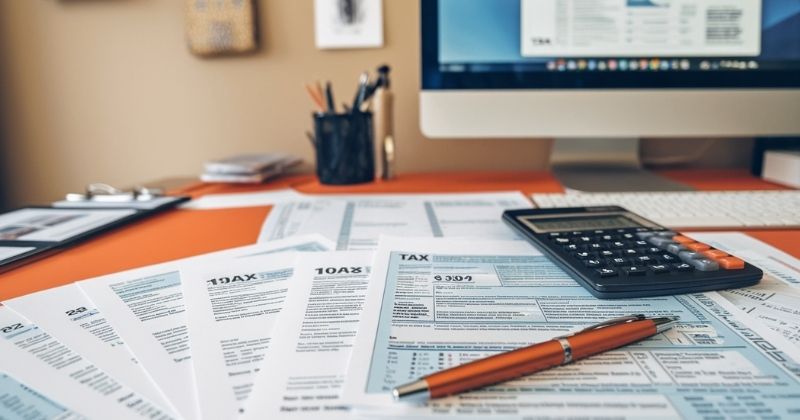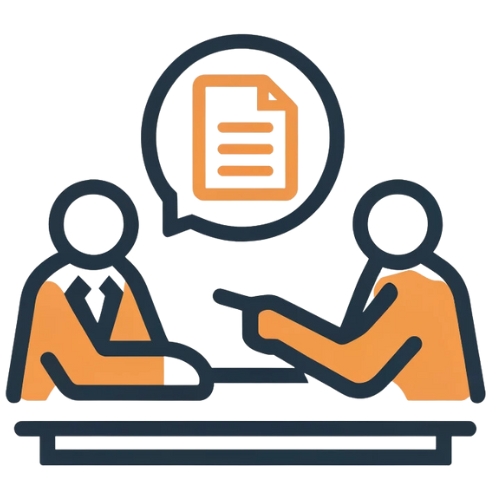
For the 2024-2025 tax year, South Africa continues with its progressive tax system, adjusting brackets and rates to account for inflation. The tax tables for individuals, companies, and small business corporations remain unchanged from the previous year. Understanding these SARS tax brackets and rates is essential for effective tax planning and ensuring compliance with South African tax regulations.
Key Takeaways
- Minimum Tax Thresholds: For the 2024-2025 tax year, individuals under 65 must earn more than R95 750 annually to be liable for income tax; Those aged between 65 and 74 have a tax threshold of R148 217; For individuals aged 75 and older, the threshold is R165 689.
- Taxable Income Sources: Taxable income in South Africa covers a range of earnings, including salaries, bonuses, rental income, investment returns, and pensions. It’s vital to accurately account for all taxable income to calculate your taxes correctly.
- Tax Rebates and Filing: South African tax rebates, primary, secondary, and tertiary, help reduce the overall tax liability based on age. Filing can be done conveniently through SARS eFiling or by visiting SARS branches in person.
About Arcadia Finance
Need a loan? Arcadia Finance connects you to 19 reliable lenders, all fully accredited by South Africa’s National Credit Regulator. Enjoy a seamless application process, free from fees, and tailored to your unique financial needs.
Income Tax Requirements
In South Africa, the South African Revenue Service (SARS) determines the minimum income level at which individuals must pay income tax, with variations based on the taxpayer’s age. For the 2024 tax year (1 March 2023 to 29 February 2024), the income thresholds are as follows: individuals under 65 must have an income exceeding R95 750 to incur a tax liability. For those aged between 65 and 74, the threshold is R148 217, while for individuals aged 75 and older, it increases to R165 689.
Before diving into how much you need to earn to start paying tax, it’s crucial to first understand What is SARS? (South African Revenue Service). SARS is the government body responsible for collecting taxes, ensuring compliance, and ultimately funding public services in South Africa.
Understanding what qualifies as taxable income is essential for accurate tax planning. In South Africa, taxable income can include various earnings such as salaries, wages, bonuses, business income, returns on investments, and pension payments. Other sources that may be classified as taxable income include rental earnings, specific allowances, and certain benefits. Being aware of all components of your taxable income is important to ensure the correct amount of tax is calculated and paid. This knowledge not only assists in accurately completing tax returns but also facilitates effective financial planning, enabling individuals to identify potential deductions and credits relevant to their situations.
Taxable income can derive from various sources:
- Salary: An office manager earns a monthly salary of R20 000, which is subject to tax.
- Bonuses: In December, they receive a performance bonus of R5 000, which is also taxable.
- Investment Income: They earn R2 000 annually from dividends on shares.
- Rental Income: They own a small flat and rent it out for R8 000 per month. After deducting R3 000 monthly for maintenance and property taxes, the taxable rental income amounts to R5 000 per month.
In South Africa, you must pay income tax if your earnings exceed the following thresholds:
- If aged 65 or older but under 75, the tax threshold is R148 217.
- For those aged 75 and above, the threshold is R165 689.
If you’re nearing the taxable income threshold, it may be time to ask for a salary increase. Knowing how to approach your employer for a raise can not only help boost your income but also prepare you for the taxes that come with a higher salary.

What is the Process for Submitting an Income Tax Return?

Submitting Online
The most efficient method for filing an income tax return is online. This can be done through the SARS eFiling system or the MobiApp. To proceed with online filing, you need to first register for eFiling. This registration can be completed either on the SARS eFiling website or directly through the MobiApp.

Submitting at a Branch
If you prefer to submit your tax return in person, you can do so at a SARS branch office. However, it is necessary to book an appointment before visiting the branch to ensure you are accommodated.
Understanding when you start paying tax is crucial, but what happens after you file? Find out everything you need to know with our guide: Where’s My Tax Refund? – because waiting for your money can be just as stressful as owing it!
Deductions
Completing a tax return is an unavoidable responsibility of being an employed adult. While it may not be enjoyable, it is a legal obligation. Failing to submit a tax return could result in serious legal consequences with relevant government authorities.
Throughout the filing process, individuals are required to declare their tax deductions. These deductions are essentially business-related expenses that can reduce the total amount of tax owed for the financial year.
Retirement Fund Contributions
Individuals contributing to pension, provident, or retirement annuity funds during the assessment year can claim a deduction for these contributions. This deduction is capped at 27.5% of the higher amount between the total remuneration for PAYE purposes and taxable income. It is important to note that both calculations exclude any lump sums received from retirement funds and severance payments.
Medical and Disability Expenses
For those making monthly payments to medical schemes, a tax rebate is available, known as the medical scheme fees tax credit. The person who makes these contributions can claim up to R364 for each of the first two individuals covered under these medical schemes. For every additional dependent included in the scheme, a credit of R246 is allowed.
Travel Allowances
For those who frequently travel for work and receive a travel allowance from their employer, there is an opportunity to receive a refund from SARS. It is essential to maintain a comprehensive and detailed logbook of every trip, including associated expenses, as failing to do so will result in SARS rejecting the claim. While spending long hours on the road can be tiring, this process offers a small financial return for the effort involved.
Deductible Business Expenses (Self-employed)
If you operate as an independent contractor, freelancer, or sole proprietor, it is crucial to be aware of the expenses that can be deducted for tax purposes. This includes items such as stationery, telephone bills, and employee-related costs. SARS permits the deduction of all expenses directly related to generating your income. Keeping all invoices and records meticulously is vital, as it simplifies preparation and submission during tax season.
Additional Deductions for Self-employed Individuals
Beyond the previously mentioned deductions, a person can claim deductions related to their employment income or allowances only in specific and limited circumstances. For example, an individual may claim a deduction for a bad debt related to unpaid salary.
Struggling to keep up with your financial commitments, including taxes? Consider a debt review in South Africa to restructure your debt in a manageable way. This process can help you gain financial stability and ensure you’re meeting your tax obligations without unnecessary stress.

Provisional Tax
Provisional tax refers to a system of tax payments required for individuals who receive income outside of traditional employment. A provisional taxpayer includes anyone earning income from an employer not registered with the South African Revenue Service (SARS) or from sources that are not classified as regular salary or wages. This may also include allowances or advances provided by the individual’s primary source of income.
A person is not obligated to pay provisional tax if they do not operate a business and their taxable income meets one of the following conditions:
- The income will not exceed the tax threshold set for the tax year.
- Income derived from sources such as interest, dividends (both local and foreign), rental income from leasing out property, or remuneration from an employer not registered for tax purposes amounts to R30 000 or less for that tax year.
What is a Sole Proprietor?
A sole proprietor, often referred to as a sole trader or individual entrepreneur, is someone who owns and manages a business independently. In this business structure, there is no legal separation between the individual owner and the business itself, meaning the owner is personally responsible for all aspects of the business, including any debts or liabilities it may incur.
A sole trader does not have to operate entirely alone; they have the option to hire employees if needed. However, the sole trader retains full ownership of the business. Any profit generated by the business is considered the owner’s income. Similarly, all assets and debts related to the business belong to the sole proprietor.
Exempt Income
Certain forms of income may be exempt from taxation for individuals, provided they meet the relevant criteria. The list of these exemptions, each subject to specific conditions and restrictions, includes:
- Income earned by certain non-resident employees working in South Africa on behalf of foreign states.
- Specific pensions sourced from outside South Africa, applicable to both residents and non-residents.
- Lump sum payouts arising from qualifying life insurance policies.
- Special uniform allowances provided to employees for their work-related attire.
- Allowances granted to employees for costs associated with employment-related relocation.
- Income earned by resident employees from foreign employment up to a maximum of R1.25 million, within designated timeframes.
- Legitimate scholarships and bursaries granted for educational purposes.
- Payments of alimony made to a spouse as per a legal separation or divorce agreement.
- Earnings or gains accumulated from investments that are classified as tax-free.
Even if you’re below the threshold locally, earning abroad may still trigger taxes. What is a Tax Residency Certificate? helps prove which country has taxing rights over your income.

Tax Rebates and Credits
In South Africa, individuals are entitled to specific tax rebates that help reduce their overall tax liability. The South African Revenue Service (SARS) offers three main types of rebates: primary, secondary, and tertiary. These rebates are applied directly to the tax payable and are not dependent on an individual’s income level, making them a key component of tax relief for taxpayers.
The primary rebate is available to all taxpayers under the age of 65, providing a standard reduction in the amount of tax owed. For individuals aged 65 and older, an additional secondary rebate is applied, further lowering their tax burden. For those aged 75 and above, a tertiary rebate is available, offering even more relief. These rebates ensure that the tax system considers age-related financial aspects, providing support for senior citizens. By applying these rebates, individuals can effectively decrease their total tax payable, aiding in better financial planning.
If you’re self-employed or earn income outside a regular job, the tax rules differ slightly. Learn more in our guide on What is Provisional Tax in South Africa? and see how your earnings may trigger additional tax duties.
Conclusion
Understanding the income tax system in South Africa, including the minimum salary thresholds, sources of taxable income, and available deductions and rebates, is crucial for effective financial planning. Having a solid grasp of tax requirements enables individuals to meet their obligations while maximising potential benefits, such as tax credits and allowances. By staying informed about tax brackets, thresholds, and filing procedures, taxpayers can ensure compliance and take full advantage of the relief measures offered by SARS.
Frequently Asked Questions
For the 2024-2025 tax year, individuals under the age of 65 must earn more than R95 750 to incur a tax liability. Those aged between 65 and 74 have a threshold of R148 217, while individuals aged 75 and above must earn more than R165 689 to be subject to income tax.
Taxable income includes various earnings such as salaries, wages, bonuses, business income, investment returns, pension payments, rental income, certain allowances, and specific benefits. It is important to assess all sources of income to ensure accurate tax calculations and compliance.
You can submit your income tax return online through the SARS eFiling system or the MobiApp. If you prefer to submit in person, you can visit a SARS branch office, but you must book an appointment beforehand to ensure service.
Yes, there are three main types of tax rebates: primary, secondary, and tertiary. The primary rebate is available to all taxpayers under 65, the secondary rebate applies to those aged 65 and older, and the tertiary rebate is for individuals aged 75 and above. These rebates help reduce the overall tax liability based on age.
Deductible expenses include contributions to retirement funds (capped at 27.5% of taxable income), medical scheme contributions, travel expenses (if a travel allowance is received), and business-related expenses for self-employed individuals, such as office supplies and employee costs. Accurate record-keeping is crucial for claiming these deductions.
Fast, uncomplicated, and trustworthy loan comparisons
At Arcadia Finance, you can compare loan offers from multiple lenders with no obligation and free of charge. Get a clear overview of your options and choose the best deal for you.
Fill out our form today to easily compare interest rates from 19 banks and find the right loan for you.


